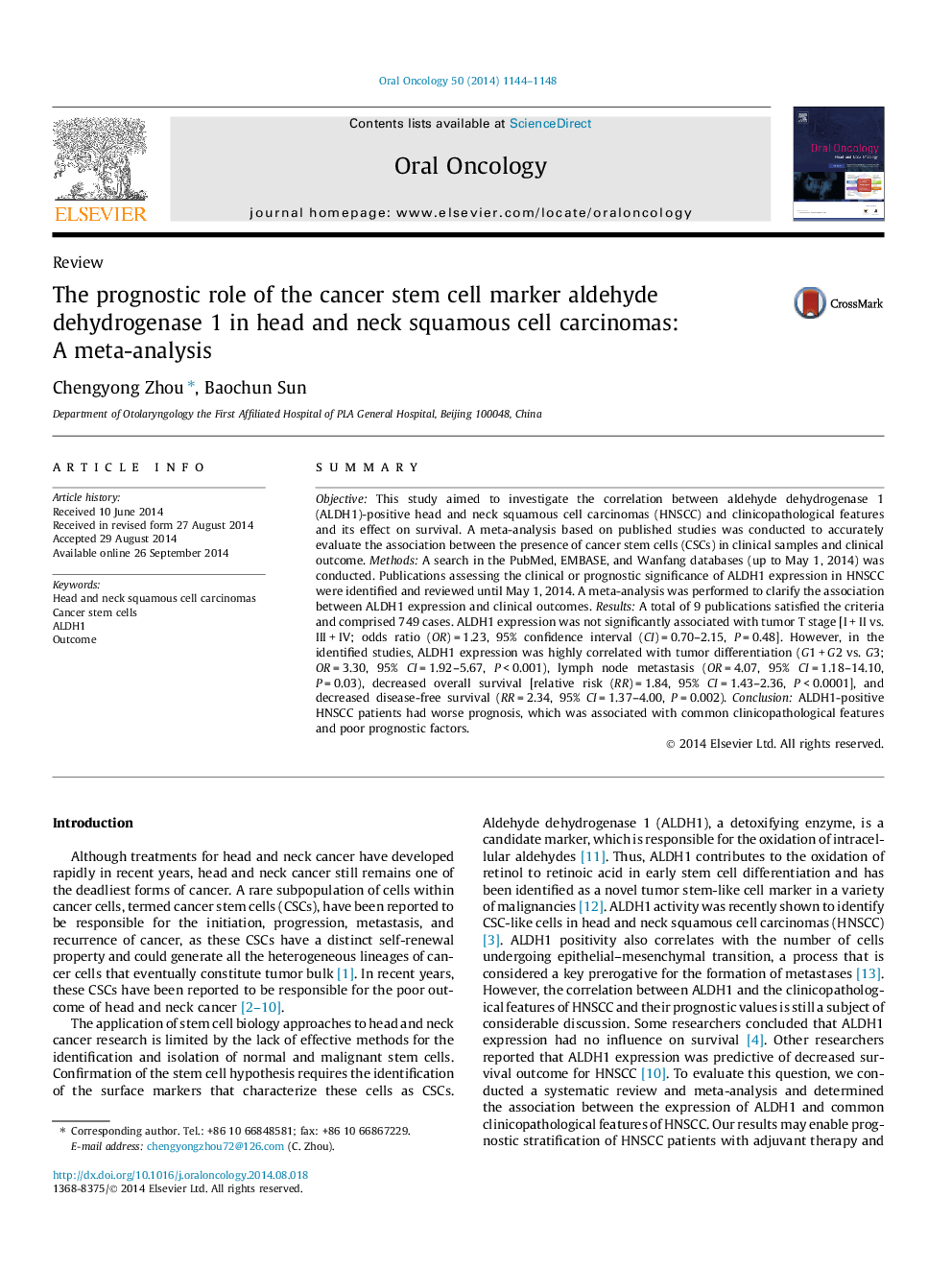| Article ID | Journal | Published Year | Pages | File Type |
|---|---|---|---|---|
| 3163943 | Oral Oncology | 2014 | 5 Pages |
SummaryObjective: This study aimed to investigate the correlation between aldehyde dehydrogenase 1 (ALDH1)-positive head and neck squamous cell carcinomas (HNSCC) and clinicopathological features and its effect on survival. A meta-analysis based on published studies was conducted to accurately evaluate the association between the presence of cancer stem cells (CSCs) in clinical samples and clinical outcome. Methods: A search in the PubMed, EMBASE, and Wanfang databases (up to May 1, 2014) was conducted. Publications assessing the clinical or prognostic significance of ALDH1 expression in HNSCC were identified and reviewed until May 1, 2014. A meta-analysis was performed to clarify the association between ALDH1 expression and clinical outcomes. Results: A total of 9 publications satisfied the criteria and comprised 749 cases. ALDH1 expression was not significantly associated with tumor T stage [I + II vs. III + IV; odds ratio (OR) = 1.23, 95% confidence interval (CI) = 0.70–2.15, P = 0.48]. However, in the identified studies, ALDH1 expression was highly correlated with tumor differentiation (G1 + G2 vs. G3; OR = 3.30, 95% CI = 1.92–5.67, P < 0.001), lymph node metastasis (OR = 4.07, 95% CI = 1.18–14.10, P = 0.03), decreased overall survival [relative risk (RR) = 1.84, 95% CI = 1.43–2.36, P < 0.0001], and decreased disease-free survival (RR = 2.34, 95% CI = 1.37–4.00, P = 0.002). Conclusion: ALDH1-positive HNSCC patients had worse prognosis, which was associated with common clinicopathological features and poor prognostic factors.
